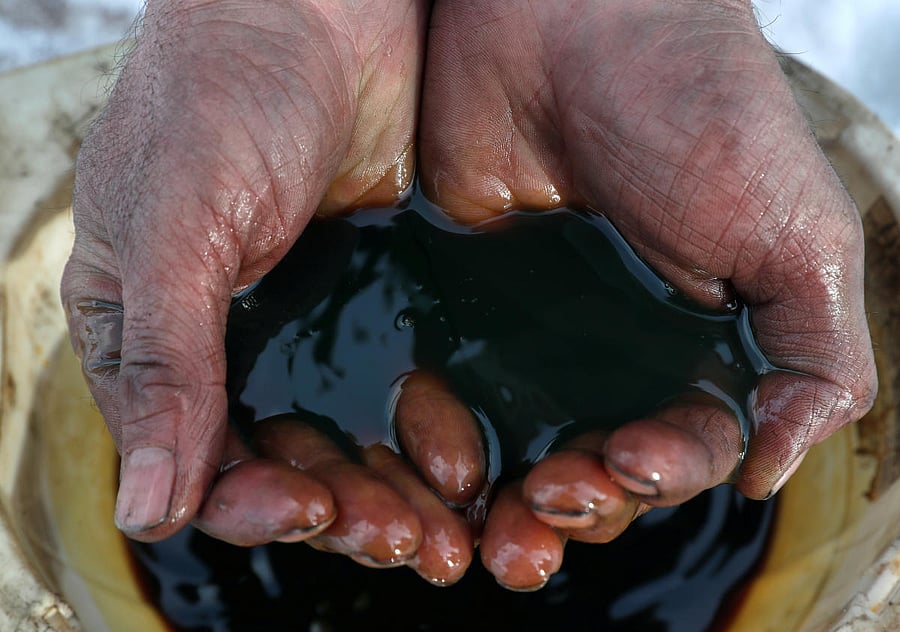
In an extraordinary turn of events, crude oil prices crashed dramatically into negative territory on Monday. At its lowest, the price of oil futures for May fell to minus (-) $40.3 a barrel, falling by over 300% in a single day, the steepest in the history of oil. Negative oil price – Is that even possible? Well, read on to find out if it is and what it means.
What determines the price of crude oil in global markets?
There are three main types of benchmarks in crude oil –- Western Texas Intermediate (WTI), Brent Crude (North Sea oil) and Dubai Crude (oil from the Gulf). These benchmarks serve as reference prices for buyers and sellers of crude oil. The prices of all types of crude depend on the global demand and supply, and the oil production and pricing policies of the oil-producing nations, which have formed into the OPEC and OPEC+ cartels. The demand for oil from buying countries, which aggregates into the global demand, depends broadly on the level of economic activity in those countries. Demand for oil goes up in times of high economic growth, and it falls when economies slow down.
Why have crude oil prices been falling for some time now?
Global oil prices have been falling over the last several months from last year’s average of $67 a barrel as all the major economies have been slowing down and demand for oil has fallen. Usually, when the demand falls, the Organisation of Petroleum Exporting Countries (OPEC), led by Saudi Arabia, decides to cut oil production and thus firms up the prices. This time, however, Russia (which leads the 10 other oil-producing countries that together form the ‘+’ in OPEC+) did not agree to cut its oil production and so oil prices kept falling. Russia came around, eventually, to a deal with the US and Saudi Arabia but by then oil price had already fallen to about $30 a barrel.
But even that does not explain why US oil price suddenly fell below zero on Monday.
No, it doesn’t. What explains it is the coronavirus pandemic. Oil is primarily required for three things: for power production; for some industrial operations, such as running mobile phone towers; and, most visibly, to run vehicles (two-wheelers, cars, trucks, trains, ships, airplanes). Due to the pandemic, much of the world is in either complete or partial lockdowns. People are not moving around much on land, sea or air; and due to the halt in economic activity, the demand for power has fallen, too. That has wiped out the demand for oil, so oil-buying has fallen drastically while production has continued unabated. So, there is a glut of oil. So much so that oil producers – especially in the US – are running out of storage space for it. That’s why they are willing to pay buyers to take the oil. But that’s only in the US. Elsewhere, Brent and Dubai Crude are trading at depressed prices, but still above $20 a barrel.
So, isn’t it a good time now to buy up all the oil we can and store it?
Countries should seriously look at this option. US President Donald Trump has said the government will take up some 75 million barrels to shore up the country’s strategic reserves. India has an existing strategic reserve storage capacity of 5.3 million tonnes at Visakhapatnam, Mangaluru and Padur. The government has decided to fill these up.
So, now that oil prices are so low, why are we in India still paying the same price for petrol and diesel that we used to pay in 2013?
Well, on a lighter note, you should ask Modiji. During 2013-2014, international oil prices were at historically high levels, touching $108-110 a barrel. The prices started to fall in May 2014 and reached a historic low of $29 a barrel in early 2016. Since then, oil prices have remained relatively low, rising to an average of $67 a barrel last year. So, in all fairness, we should be paying less than half the price for petrol and diesel that we used to pay in 2013. But the government has raised taxes and cesses to keep fuel prices artificially high. So, no, in India, you are not going to be paid to buy petrol and diesel.
